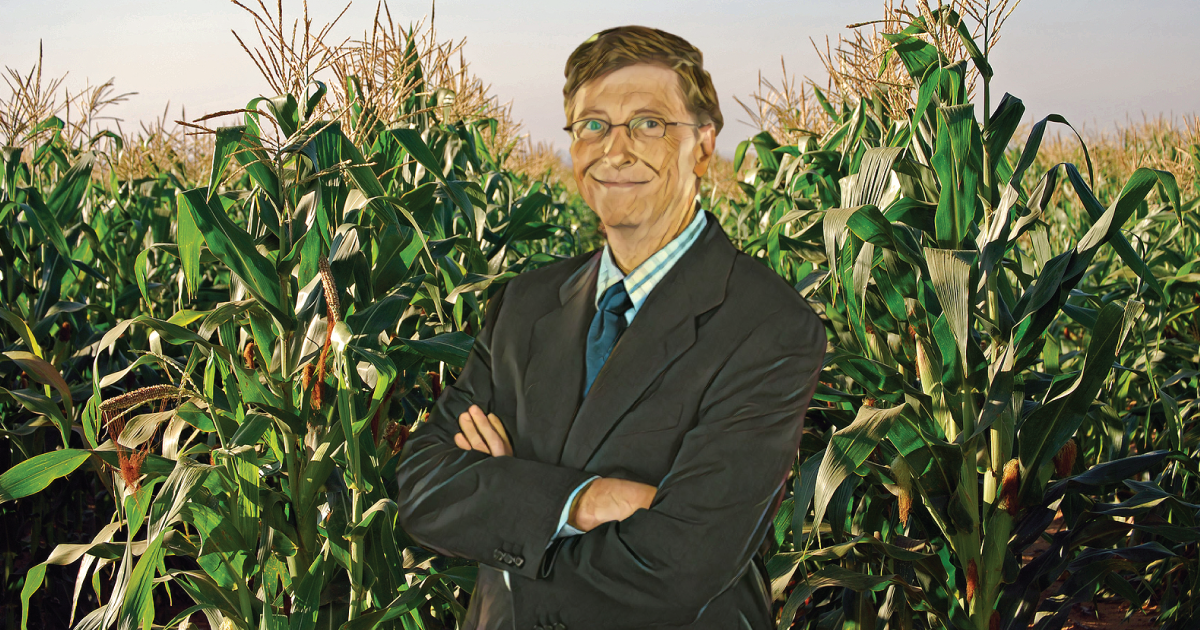
Bill Gates’ Plans To Remake Food Systems Will Harm the Climate
In his new book on how to avoid a climate disaster, billionaire philanthropist Bill Gates discusses his plans to model African food systems upon India’s “green revolution,” in which a plant scientist increased crop yields and saved a billion lives, according to Gates. The obstacle to implementing a similar overhaul in Africa, he asserts, is that most farmers in poor countries don’t have the financial means to buy fertilizers.
February 25, 2021 | Source: U.S. Right to Know | by Stacy Malkan
In his new book on how to avoid a climate disaster, billionaire philanthropist Bill Gates discusses his plans to model African food systems upon India’s “green revolution,” in which a plant scientist increased crop yields and saved a billion lives, according to Gates. The obstacle to implementing a similar overhaul in Africa, he asserts, is that most farmers in poor countries don’t have the financial means to buy fertilizers.
“If we can help poor farmers raise their crop yields, they’ll earn more money and have more to eat, and millions of people in some of the world’s poorest countries will be able to get more food and the nutrients they need,” Gates concludes. He doesn’t consider many obvious aspects of the hunger crisis, just as he skips crucial elements of the climate debate, as Bill McKibben points out in the New York Times review of Gates’ book How to Avoid a Climate Disaster.
Gates fails to mention, for example, that hunger is largely due to poverty and inequality, not scarcity. And he seems unaware that the decades-long “green revolution” push for industrial agriculture in India has left a harsh legacy of harm for both the ecosystem and smallholder farmers, who have been protesting in the streets since last year.
“Farmer protests in India are writing the Green Revolution’s obituary,” Aniket Aga wrote in Scientific American last month. Decades into the green revolution strategy, “it is evident that new problems of industrial agriculture have added to the old problems of hunger and malnutrition,” Aga writes. “No amount of tinkering on the marketing end will fix a fundamentally warped and unsustainable production model.”
This model — which moves farmers toward ever-larger and less-diverse farming operations that rely on pesticides and climate-harming chemical fertilizers — is one the Gates Foundation has been promoting in Africa for 15 years, over the opposition of African food movements who say the foundation is pushing the priorities of multinational agribusiness corporations to the detriment of their communities.
Hundreds of civil society groups are protesting the Gates Foundation’s agricultural strategies and its influence over the upcoming UN World Food Summit. Insiders say this leadership is threatening to derail meaningful efforts to transform the food system, at a crucial moment when much of sub-Saharan Africa is reeling from multiple shocks and a growing hunger crisis due to pandemic and climate change conditions.
All this has gone unnoticed by major media outlets that are rolling out the red carpet for Gates’ book. Here are some of the reasons the critics say Gates Foundation’s agricultural development program is bad for the climate. The foundation has not responded to multiple requests for comment.
Reposted with permission from U.S. Right to Know.
